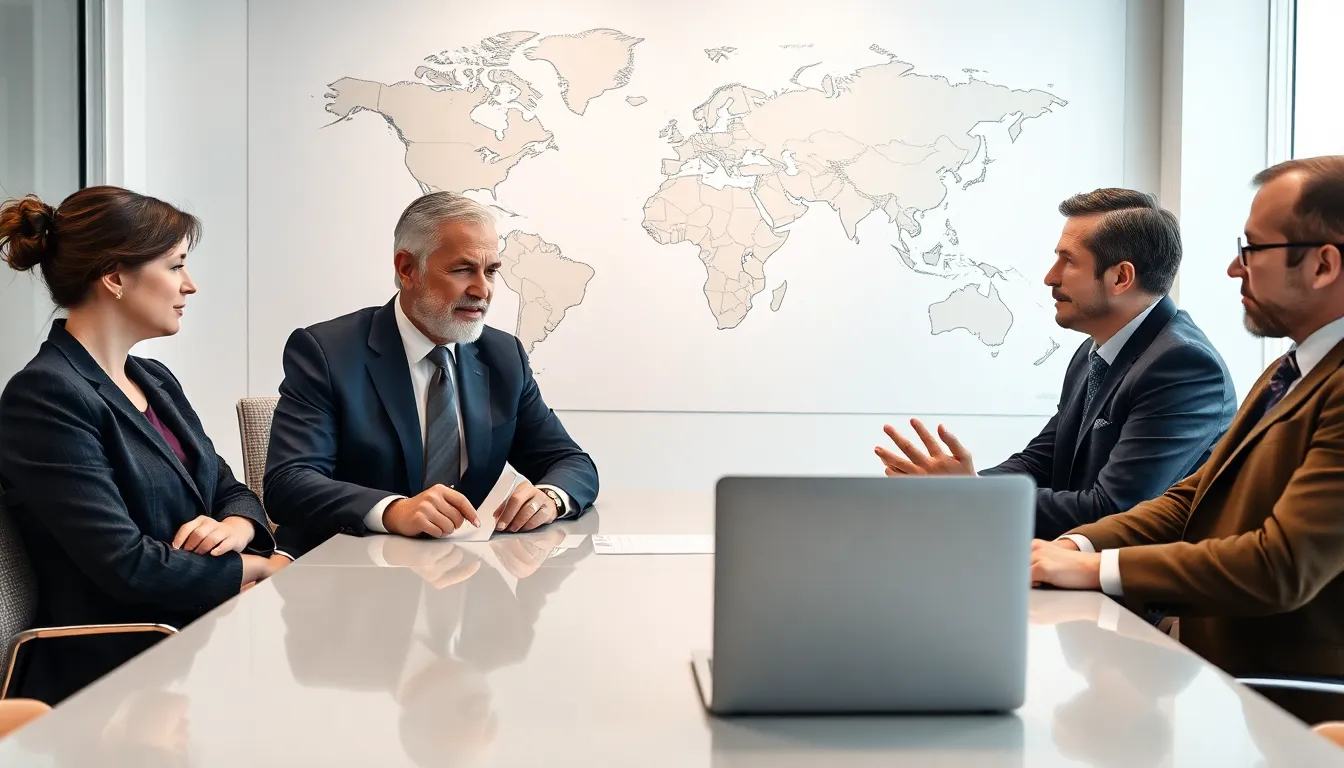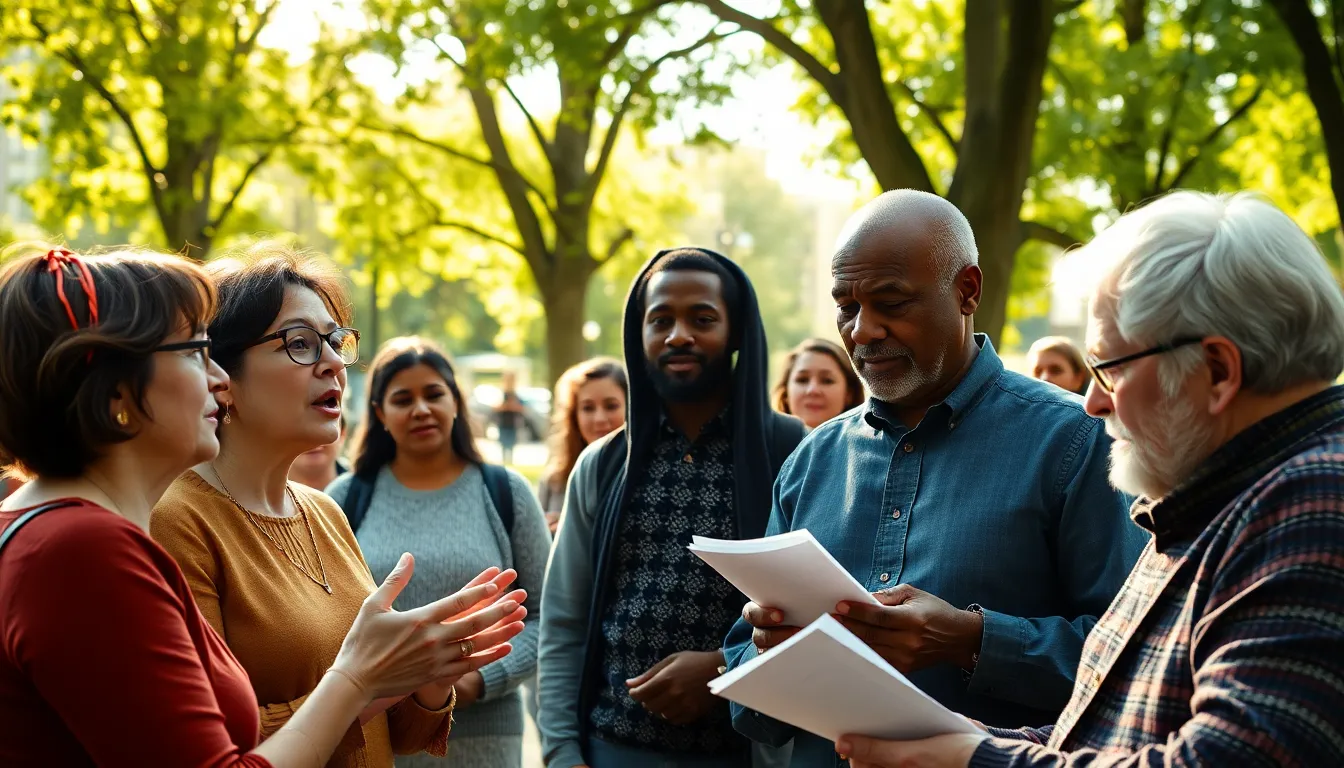In today’s interconnected world, mastering international negotiation skills is crucial for success in various fields. Whether in business, diplomacy, or conflict resolution, the ability to navigate cultural differences and communicate effectively can make or break a deal. Understanding the nuances of negotiation across borders not only enhances relationships but also opens doors to new opportunities.
As global interactions increase, so do the complexities of negotiations. Different cultures bring unique perspectives, values, and communication styles, making it essential for negotiators to adapt and strategize accordingly. By honing these skills, individuals can foster collaboration and achieve mutually beneficial outcomes, paving the way for sustainable partnerships in an ever-evolving landscape.
Table of Contents
ToggleUnderstanding International Negotiation Skills
International negotiation skills are essential for navigating the complexities of global interactions. Mastery of these skills enhances collaboration and strengthens partnerships amidst diverse cultural contexts.
Importance of Cultural Awareness
Cultural awareness significantly affects negotiation success. Recognizing and respecting cultural differences fosters trust and reduces misunderstandings. For example, direct communication may work in some cultures, while others prefer indirect approaches. Adapting strategies according to cultural norms, such as gift-giving in certain regions or understanding body language variations, can lead to more favorable outcomes. Acknowledging value systems and negotiation styles informs strategies and improves relationship-building efforts.
Key Attributes of Successful Negotiators
Successful negotiators possess several key attributes that enhance their effectiveness.
- Empathy: Understanding others’ perspectives facilitates collaboration and conflict resolution.
- Adaptability: Quick adjustments to varying circumstances yield advantageous results.
- Communication Skills: Clear and concise communication prevents misunderstandings and promotes clarity.
- Preparation: Thorough research and planning enable negotiators to anticipate challenges and develop effective strategies.
- Patience: Taking the time to build relationships contributes to long-term success in negotiations.
Developing these attributes equips individuals to navigate the dynamic aspects of international negotiations effectively.
Strategies for Effective International Negotiations

Effective international negotiations require strategic approaches. Preparation, research, and relationship-building skills significantly influence outcomes.
Preparation and Research
Preparation and research serve as the foundation for successful negotiations. Understanding cultural norms, political climates, and economic conditions in the counterpart’s country enhances strategy formulation. Collect specific data on industry trends, competitors, and regulations to inform decisions. Alongside, gain insights into the other party’s interests, preferences, and potential negotiation style. Utilizing resources such as government reports, academic journals, and reputable news outlets aids in gathering relevant information. Ready negotiators approach discussions with clear objectives and an understanding of possible concessions.
Building Rapport and Trust
Building rapport and trust plays a crucial role in international negotiations. Establishing a positive relationship encourages open dialogue and fosters collaboration. Show genuine interest in the other party’s culture and values by engaging in small talk relevant to their background. Active listening demonstrates respect and understanding. Use non-verbal cues, such as maintaining eye contact and appropriate body language, to convey sincerity. Invest time in relationship-building before discussing business to create a comfortable atmosphere. Cultivating trust leads to more productive negotiations and enhances long-term partnerships.
Common Challenges in International Negotiations
International negotiations often encounter specific challenges that can complicate the process. Addressing these challenges effectively leads to improved outcomes and strengthens relationships.
Language Barriers
Language barriers often impede clear communication during negotiations. Misunderstandings can arise from translation errors or different interpretations of terms. Negotiators must prioritize using simple language and confirm understanding frequently. Utilizing professional interpreters or translators enhances clarity and ensures all parties grasp essential points. Familiarity with common phrases in the other party’s language can also facilitate rapport and demonstrate respect.
Differing Negotiation Styles
Differing negotiation styles present another significant challenge. Cultural norms influence how parties approach negotiations, from assertiveness to indirect communication. For example, some cultures value direct confrontation, while others prefer subtle, accommodating tactics. Recognizing and adapting to these styles is critical. Conducting research on opponents’ negotiation preferences allows negotiators to tailor their strategies, enhancing the likelihood of reaching mutually acceptable agreements.
Practical Tips for Enhancing Negotiation Skills
Enhancing negotiation skills involves practical techniques that span active listening and effective communication. These skills significantly impact the success of negotiations in an international context.
Active Listening Techniques
Active listening techniques play a crucial role in understanding the other party’s perspective. Key techniques include:
- Paraphrasing: Restate what the other party said to confirm understanding and demonstrate engagement.
- Asking open-ended questions: Encourage further elaboration by asking questions that require more than yes or no answers.
- Nodding and verbal affirmations: Use non-verbal cues and phrases like “I see” or “interesting” to convey attentiveness.
- Summarizing key points: After discussions, recap major points to ensure alignment on shared understanding.
- Avoiding interruptions: Give the speaker time to express thoughts fully before responding.
Implementing these techniques fosters a collaborative environment, strengthens rapport, and minimizes misunderstandings.
Effective Communication Strategies
Effective communication strategies enhance clarity and foster productive dialogue during negotiations. Implement the following strategies:
- Tailoring language: Use simple and clear language, avoiding jargon that could confuse the other party.
- Being culturally sensitive: Adapt communication styles based on cultural norms, recognizing differences in directness and tone.
- Clarifying assumptions: Regularly address any assumptions to prevent misinterpretations.
- Utilizing appropriate body language: Maintain open and inviting body language to reinforce the intended message.
- Establishing a positive tone: Use a friendly and respectful tone to create an inviting atmosphere for discussions.
Applying these strategies promotes clear communication, supports relationship building, and enhances the likelihood of successful negotiation outcomes.
Mastering international negotiation skills is essential in today’s global landscape. As interactions across borders become more frequent the ability to navigate cultural differences and communicate effectively can make all the difference. By honing these skills individuals not only enhance their personal effectiveness but also contribute to building stronger international relationships.
Emphasizing preparation and adaptability equips negotiators to tackle challenges and seize opportunities. Recognizing the nuances of different cultures fosters trust and collaboration which are key to successful negotiations. As individuals invest in developing these skills they position themselves as valuable assets in any international context.



